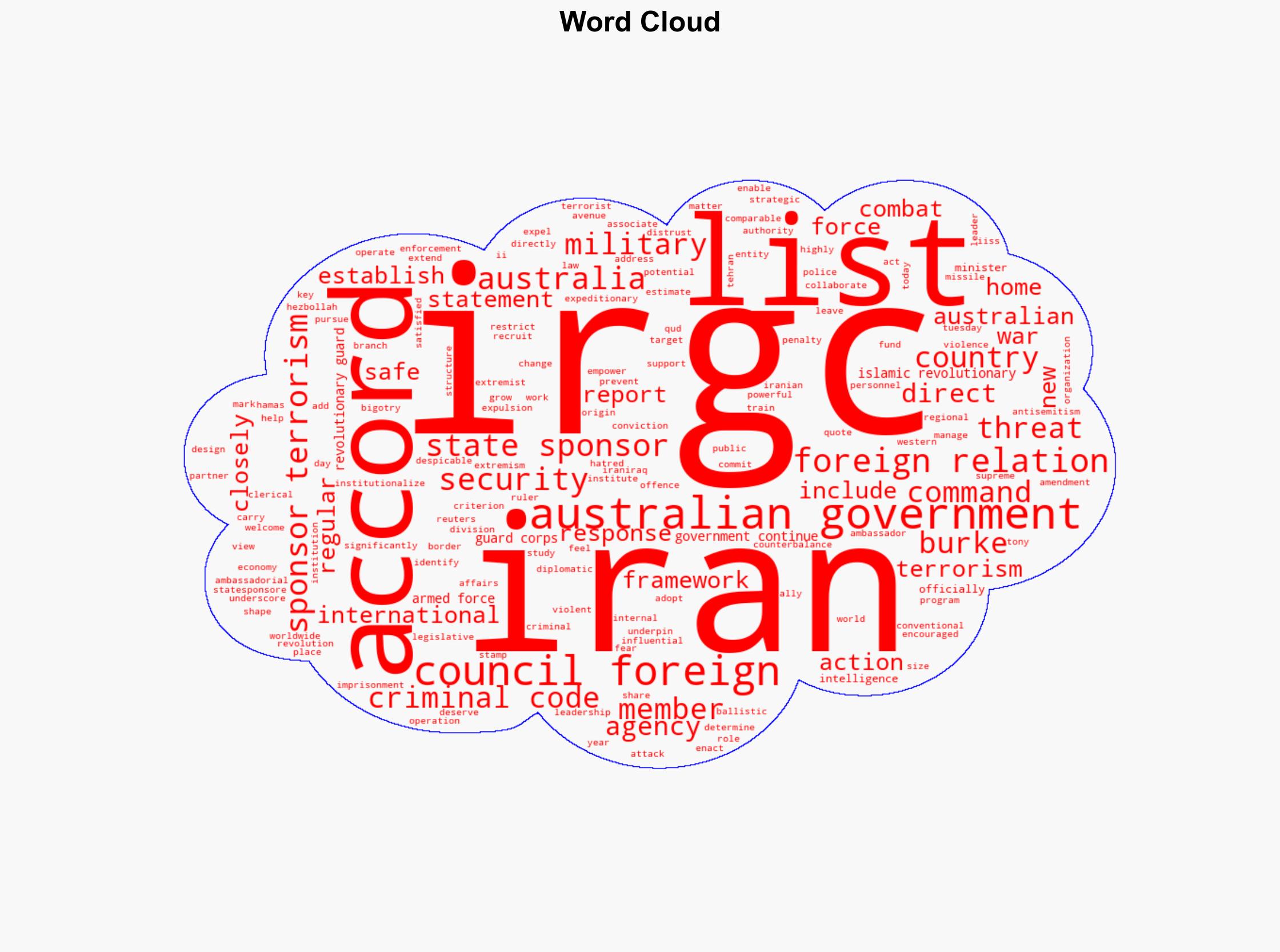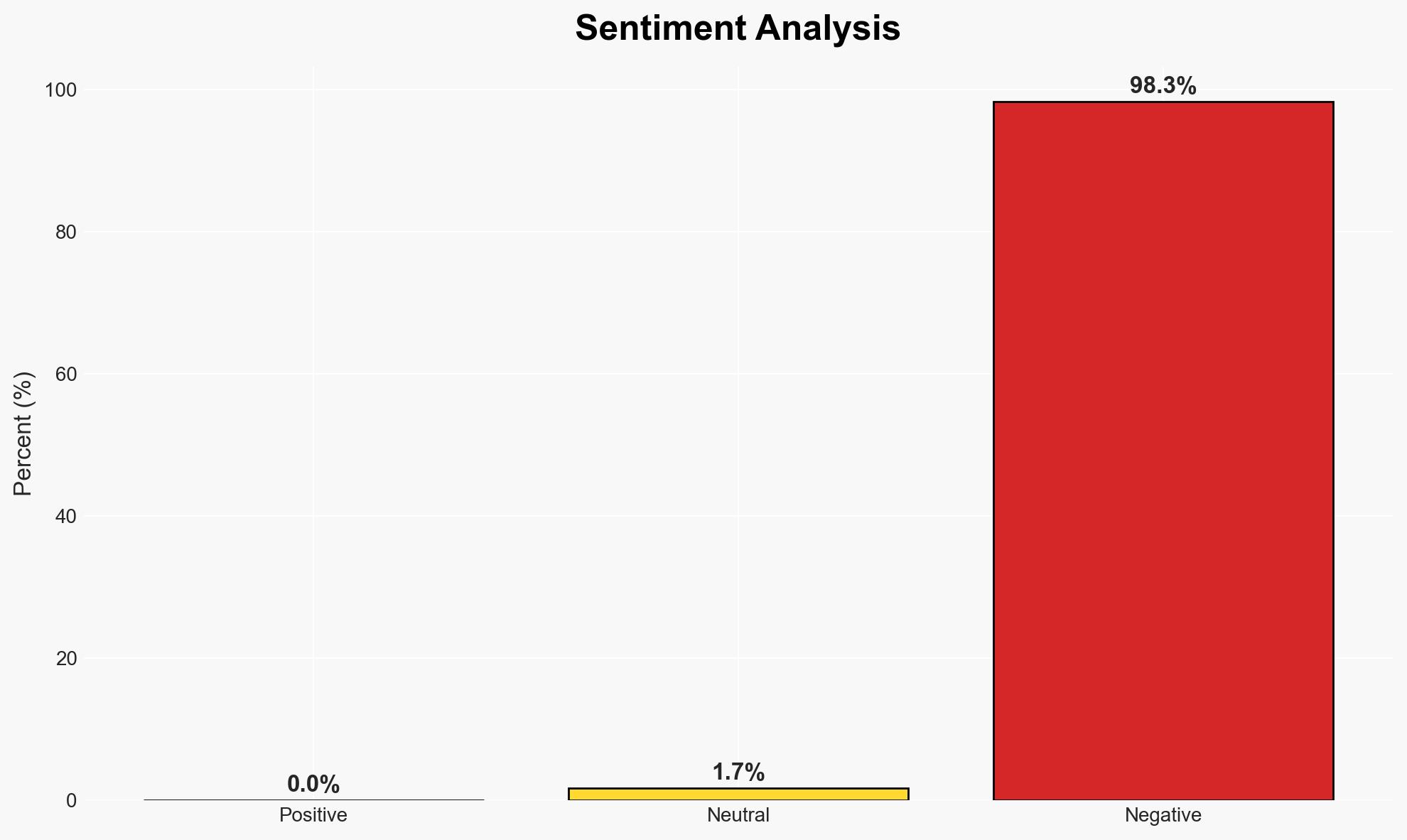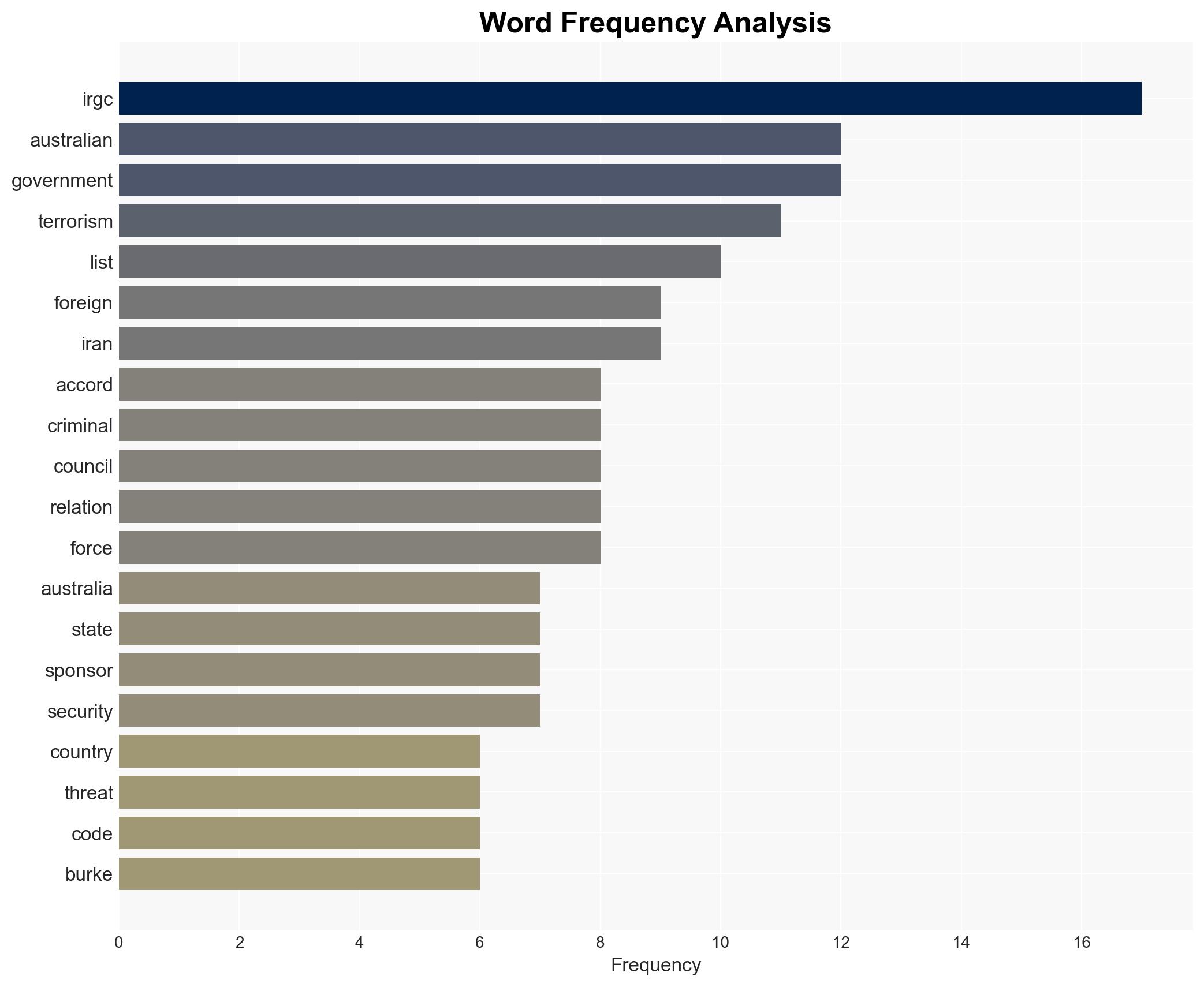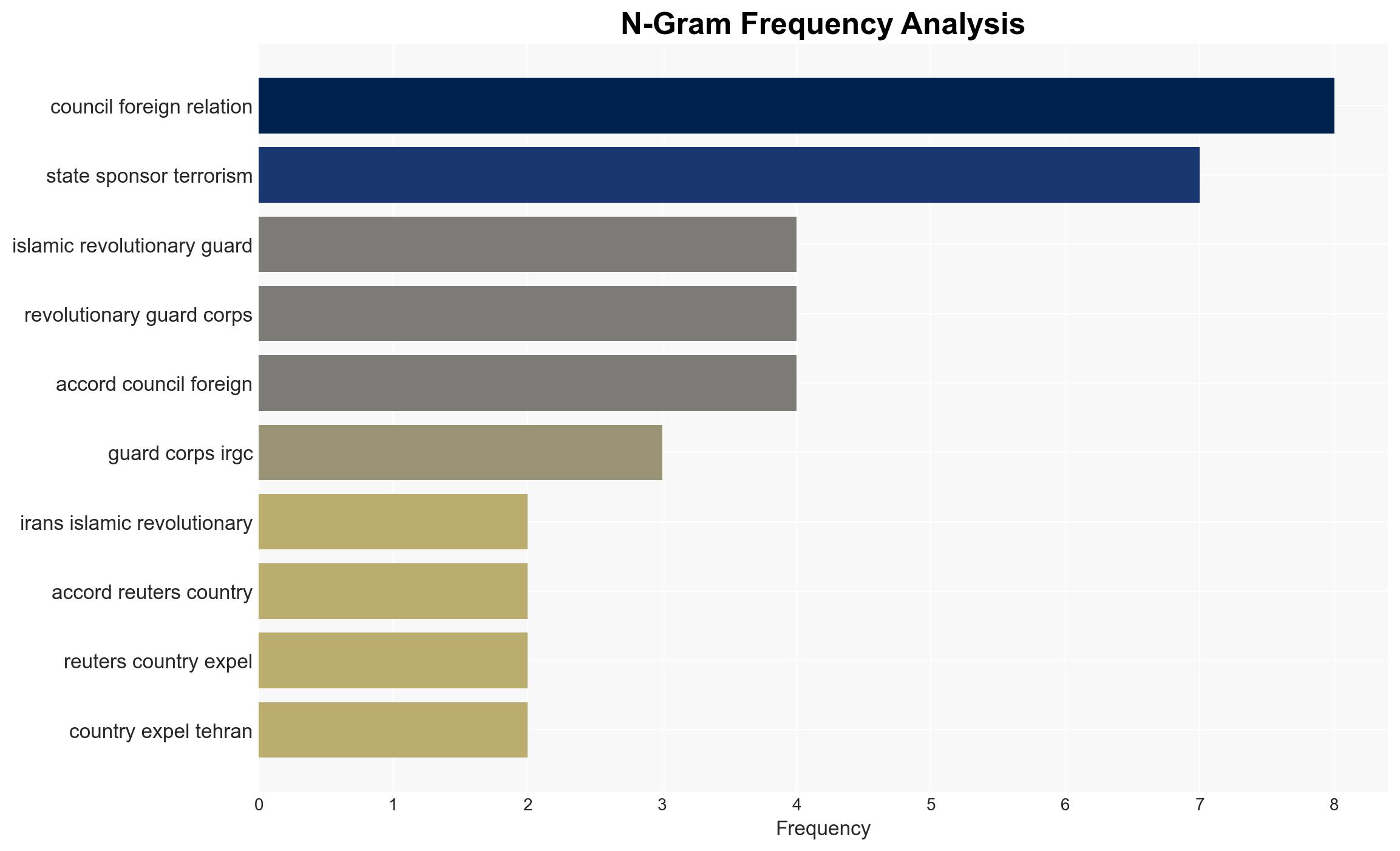Australia designates Iran’s IRGC as a state sponsor of terrorism following security assessments and recent at…
Published on: 2025-11-27
AI-powered OSINT brief from verified open sources. Automated NLP signal extraction with human verification. See our Methodology and Why WorldWideWatchers.
Intelligence Report: What is IRGC Australia lists Iran’s Islamic Revolutionary Guard Corps as state sponsor of terrorism
1. BLUF (Bottom Line Up Front)
Australia has designated Iran’s Islamic Revolutionary Guard Corps (IRGC) as a state sponsor of terrorism following alleged attacks on Jewish communities in Australia. This move marks a significant diplomatic escalation, including the expulsion of the Iranian ambassador. The decision is likely to affect bilateral relations and regional security dynamics. Overall confidence in this assessment is moderate due to limited publicly available corroborative evidence.
2. Competing Hypotheses
- Hypothesis A: The IRGC was directly involved in orchestrating antisemitic attacks in Australia, justifying its designation as a state sponsor of terrorism. This is supported by the Australian government’s actions and statements but lacks detailed public evidence of direct IRGC involvement.
- Hypothesis B: The designation of the IRGC is primarily a political maneuver by Australia to align with broader international pressure on Iran, rather than a response to direct evidence of IRGC involvement in specific attacks. This hypothesis is supported by the geopolitical context and Australia’s alignment with Western allies.
- Assessment: Hypothesis A is currently better supported by the official statements and legislative actions taken by Australia. However, a shift towards Hypothesis B could occur if further evidence does not substantiate the direct involvement of the IRGC in the alleged attacks.
3. Key Assumptions and Red Flags
- Assumptions: The Australian government has credible intelligence linking the IRGC to the attacks; the designation will have a deterrent effect on future IRGC activities; international partners will support Australia’s actions.
- Information Gaps: Specific evidence linking the IRGC to the attacks; details on the intelligence assessments that led to the designation; reactions from Iran beyond diplomatic expulsions.
- Bias & Deception Risks: Potential confirmation bias in interpreting intelligence; source bias if information is primarily from Western-aligned entities; possible Iranian disinformation campaigns to counter the narrative.
4. Implications and Strategic Risks
This development could strain Australia-Iran relations and influence regional security dynamics, potentially escalating tensions. It may also affect Australia’s diplomatic standing and its relations with other Middle Eastern countries.
- Political / Geopolitical: Possible diplomatic retaliation from Iran; increased alignment with Western policies against Iran.
- Security / Counter-Terrorism: Heightened threat perception from Iranian-linked entities; potential for retaliatory actions against Australian interests.
- Cyber / Information Space: Increased risk of cyber operations targeting Australian infrastructure; potential for information warfare tactics.
- Economic / Social: Limited direct economic impact but potential social tensions within Australian communities; increased security measures could affect public sentiment.
5. Recommendations and Outlook
- Immediate Actions (0–30 days): Enhance intelligence-sharing with international partners; increase security measures at potential target sites; monitor Iranian diplomatic and cyber activities closely.
- Medium-Term Posture (1–12 months): Strengthen counter-terrorism capabilities; engage in diplomatic efforts to mitigate escalation; develop resilience against potential cyber threats.
- Scenario Outlook:
- Best Case: Diplomatic tensions de-escalate with no further incidents.
- Worst Case: Retaliatory attacks or cyber operations by Iranian-linked entities.
- Most Likely: Continued diplomatic strain with sporadic cyber threats.
6. Key Individuals and Entities
- Penny Wong – Australian Foreign Minister
- Tony Burke – Australian Minister for Home Affairs
- Islamic Revolutionary Guard Corps (IRGC)
- Not clearly identifiable from open sources in this snippet – Specific individuals within the IRGC or Iranian government.
7. Thematic Tags
Structured Analytic Techniques Applied
- Cognitive Bias Stress Test: Expose and correct potential biases in assessments through red-teaming and structured challenge.
- Bayesian Scenario Modeling: Use probabilistic forecasting for conflict trajectories or escalation likelihood.
- Network Influence Mapping: Map relationships between state and non-state actors for impact estimation.
Explore more:
National Security Threats Briefs ·
Daily Summary ·
Support us





